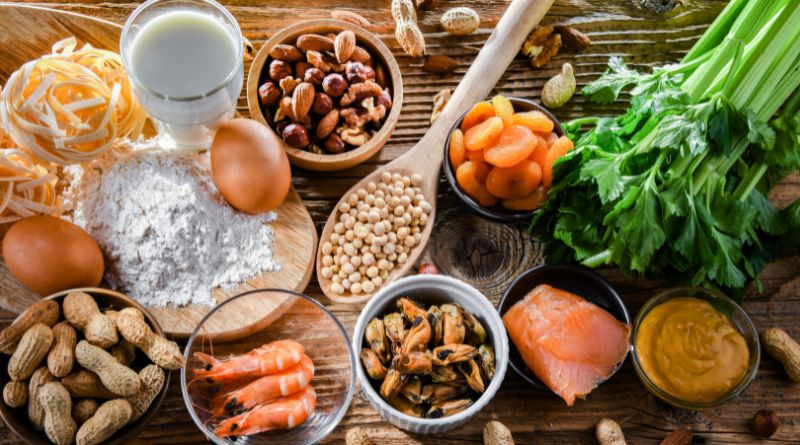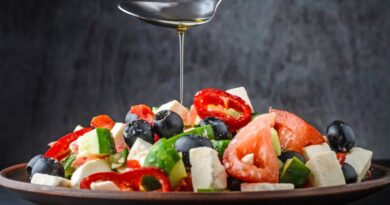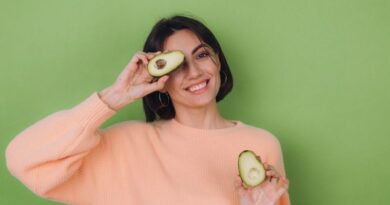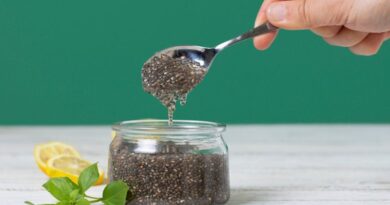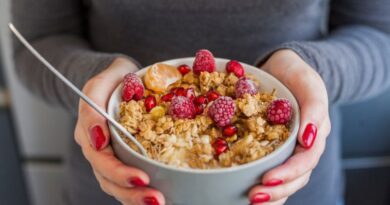In today’s fast-paced world, convenience often takes precedence over nutrition, and as a result, we often find ourselves reaching for quick and affordable food options. We’re all very busy and sometimes it’s difficult to remember to eat good food. Often, we just grab something quick to eat without thinking if it’s good for us or not. Ready-made food is always available and has made things easier for us before. But, is it really worth it?
However, it’s essential to be aware that some common everyday foods may be detrimental not only to our health but also to our wallets. In this blog post, we will explore the foods that are bad for your health and also find the hidden costs of these choices, and shed light on the negative impact they can have on both our well-being and finances.
Many foods we eat every day, like Coke or Twinkies, can cause health issues if we don’t eat them carefully or if we don’t avoid them altogether, say heart doctors and other experts. Some of these foods are obviously bad but they still sell because they make a lot of money. Other foods might not seem that bad, but if we eat too much of them, they can also hurt our health.
1. Sparkling Mineral Water
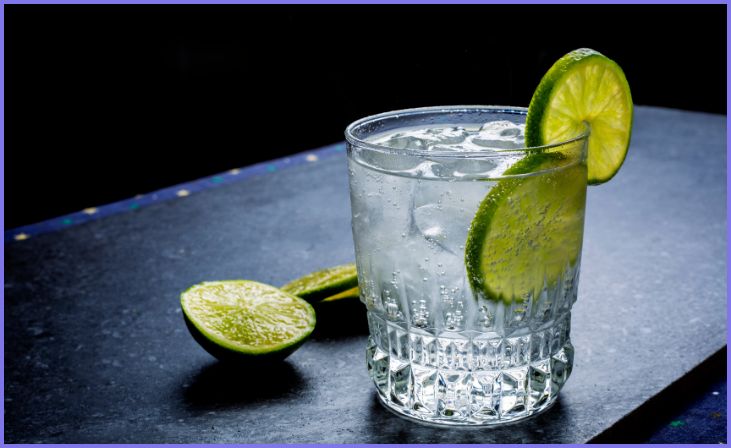
PFAS chemicals are made by humans and are used in many things like clothes that don’t stain easily and food wrappers. They’ve been around since the 1940s. Even though the government doesn’t control them, according to the EPA, they can cause health problems like messing with your thyroid, causing cancer, and making babies born smaller than they should be.
Scientists tested certain brands of fizzy mineral water and found that they contained small amounts of PFAS chemicals. The reason for this could be because the water used to make the sparkling water had high levels of PFAS, or the process of adding carbonation to the water could have introduced the chemicals.
2. Refried Beans
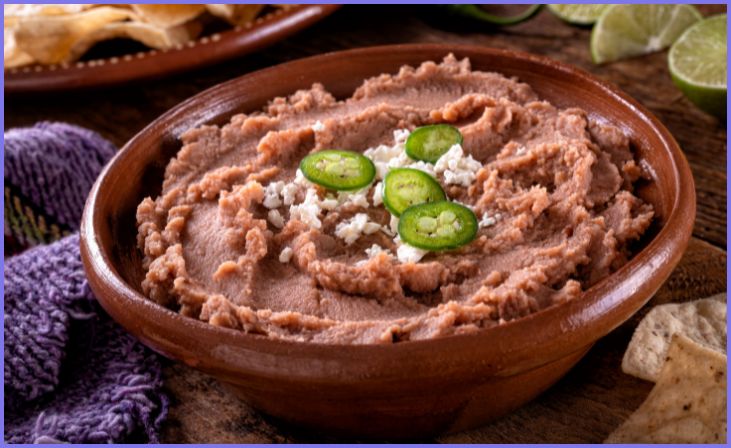
When you make beans at home from scratch, they can be really good for you because they have a lot of fiber and protein that your body needs. But the processed version of beans, even though it’s convenient and can be used in many ways, isn’t as healthy.
When refried beans are processed, they have a lot of salt and unhealthy fats. Eating too much of these can cause issues like high blood pressure, obesity, and high cholesterol. Some studies suggest that a diet high in these unhealthy ingredients may also increase the chances of getting cancer, although more research is needed to be sure.
Quick Link: 7 Enticing Health Benefits of Chia Seeds
3. Sunflower Seeds

Sunflower seeds are usually considered a healthy snack, but eating too many can make you consume a lot of calories and gain weight. They can also have a high amount of salt, so eating too many can lead to too much salt intake.
In 2017, scientists made a worrying discovery about sunflower seeds. They found that some of these seeds had a type of mold that produced harmful toxins. These toxins can be dangerous for the liver and increase the risk of developing cancer. So, if sunflower seeds have these toxins, eating them can be risky for your health
4. Canned Tuna
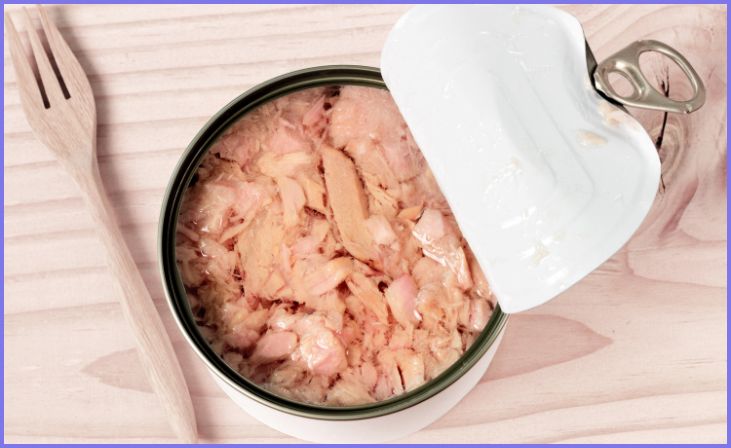
You might have heard that nutritionists often recommend tuna for weight loss diets. This is because tuna is rich in protein and low in carbohydrates. We know that diets with lots of protein and few carbs are often very effective for losing weight.
However, before including canned tuna in your everyday diet, it’s important to know that it may contain mercury. Even small amounts of mercury can be very harmful and cause issues with your nervous system, immune system, and digestion.
5. Fried Chicken

When it comes to fried chicken, there are a couple of things to consider. First, it’s important to remember that it’s fried in oil, so it’s best to eat it in limited amounts. On top of that, fried chicken is usually coated in a lot of flour.
Fried chicken is usually packed with calories, which can cause issues like weight gain, diabetes, and heart disease. If you prefer chicken, a healthier choice would be to grill it instead.
6. Tortillas
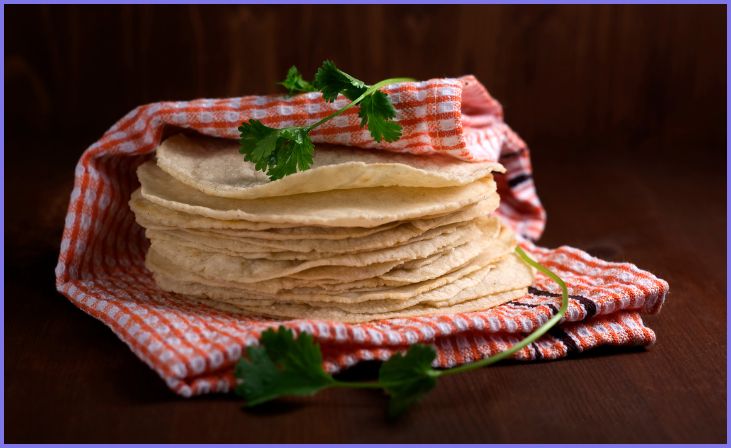
Tortillas are okay to eat in small amounts, but they’re not good for you if you have too many. Flour tortillas, which are enjoyed worldwide, are not the healthiest option. They usually have a lot of calories.
The flour used in tortillas is usually made in large quantities and contains many preservatives and additives. These chemicals help the tortillas stay fresh for a long time, but they can cause problems in our bodies. Additionally, flour tortillas often have a high amount of sodium. In conclusion, it’s better to choose corn tortillas or make them at home if you want a healthier option.
7. Kids’ Yogurt Cups
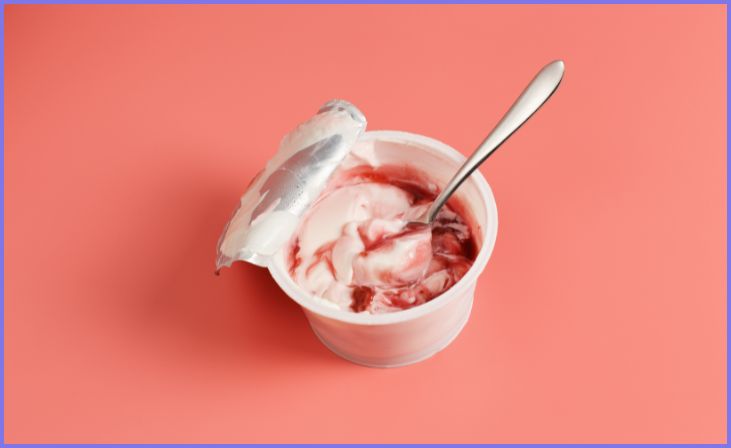
Lots of brands claim that their products can make children healthy and strong, but the reality is quite different. Yogurt cups made specifically for kids often contain a lot of sugar, fat, and artificial colors. Eating too much of these can cause different health problems.
Eating these yogurt cups can increase the chances of getting diabetes, metabolic and heart problems, and becoming obese. Moreover, some of the excess fat in these products can even increase the risk of cancer. So, even though they may have calcium, it’s important to think about the risks they pose!
8. Granola Bars
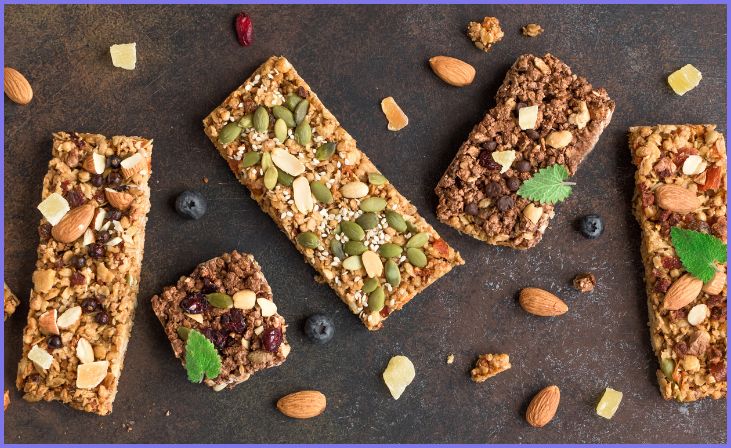
Granola bars often try to make you think they’re healthy, using nature or exercise themes in their advertisements. However, many of these granola bars may contain ingredients that are not good for your health, despite the reputation they have.
These granola bars can have a lot of processed sugars, and they usually don’t have much fruit in them. When it comes to granola bars, the healthier options are usually the ones with fewer ingredients.
9. Artificially Flavored Creamer
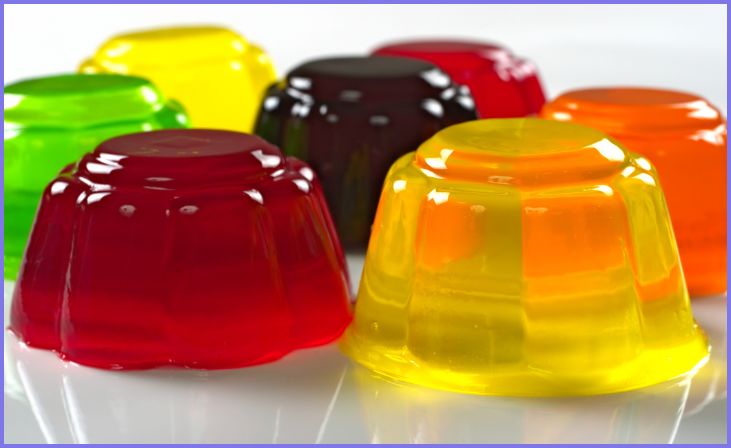
For many people, a cup of coffee in the morning is a great way to start the day. Since most people don’t like their coffee to taste bitter, they often add creamer. There are many artificially flavored coffee creamers available, ranging from basic vanilla to unique flavors like “White Chocolate Raspberry”.
While adding a small amount of creamer to your coffee is usually fine, if you prefer to make your coffee quite milky, you should reconsider. These creamers contain a lot of sugar, and the artificial flavorings they use can potentially cause issues like stomach pain and food sensitivities, depending on the specific flavoring chosen by the company.
10. Frozen Vegetables
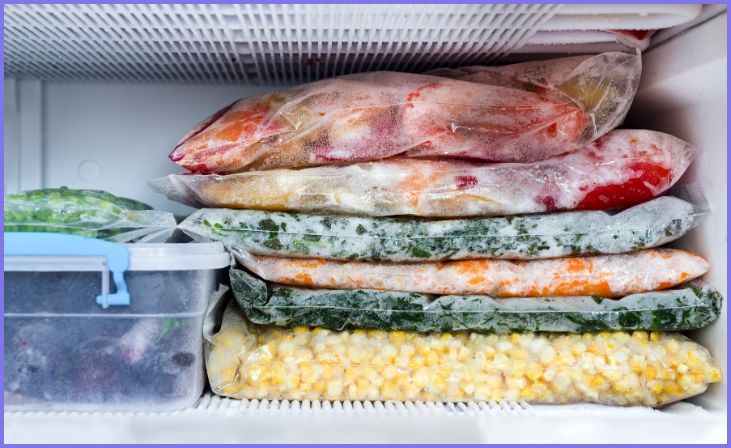
We always encourage people to eat vegetables, so if you prefer frozen vegetables, you don’t have to stop eating them. Just keep in mind that you might need to eat more of them to get the same nutrients as fresh vegetables. Freezing helps preserve some of the nutrients in frozen vegetables and fruits.
However, if the frozen produce has been in the freezer for more than a year, the nutrients start to degrade. During the blanching process, vitamins and minerals are also lost. In fact, the biggest loss of nutrients happens during that time. So, if you have frozen vegetables, it’s best to eat them promptly and without hesitation.
11. Strawberries

Strawberries can be a healthy choice for your diet, but you need to be cautious when eating them because of how they are grown. These tasty fruits can have as many as 20 different pesticides on them.
Since we eat strawberries with their skin, it’s important to clean them thoroughly before eating to avoid consuming the chemicals used in their cultivation. Simply rinsing them with water may not be sufficient, so it’s better to disinfect them using fruit sprays or other appropriate methods.
12. Tomatoes
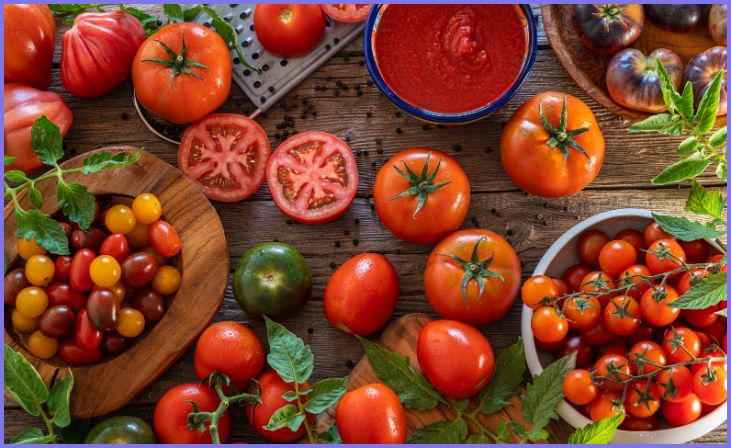
Tomatoes often have pesticides on them, and their skin is thin, making it difficult to remove all the chemicals by washing or peeling. If possible, it’s best to choose organic tomatoes as they are grown without harmful pesticides.
Pesticides are not the only concern with tomatoes. They can also be problematic for people with digestive issues because they have high levels of organic acids. If you’re prone to heartburn or have digestive problems, it’s likely best to avoid eating these fruits.
13. Margarine
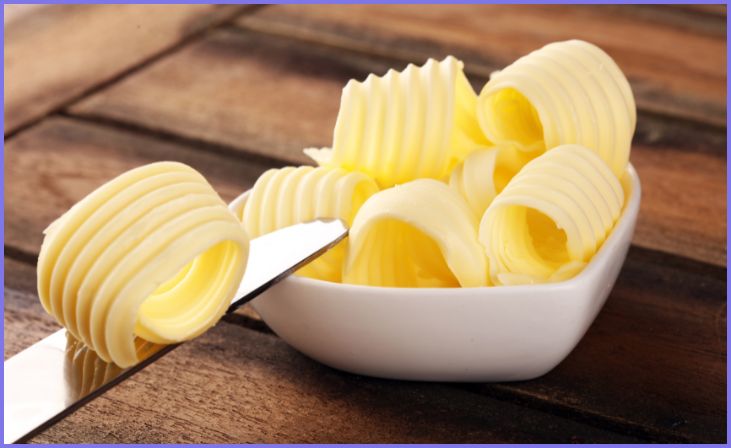
Margarine was initially created as a less expensive alternative to regular butter. Surprisingly, it contains only a small amount of cow’s milk, and some brands have even removed all animal-based ingredients from their recipe.
Instead of using fat from cow’s milk, margarine is made from various vegetable oils. However, this process results in a high amount of trans fat, which can increase the risk of serious conditions like diabetes, cancer, and heart disease.
14. Raw Cashews
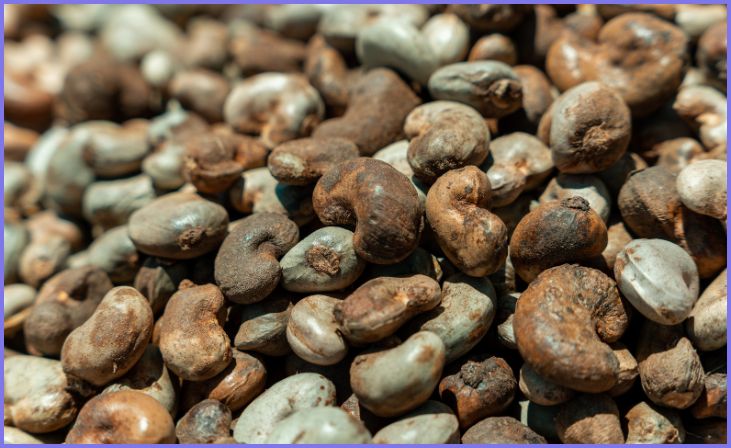
Raw cashews, which are a type of tree nut, are typically sold roasted in stores. This is done for an important reason: when cashews are in their raw state, they contain a toxic resin called urushiol. This substance can cause discomfort, such as a condition called urushiol dermatitis, which leads to symptoms like inflammation and pus formation.
This skin problem caused by raw cashews can be very serious. Furthermore, eating a large amount of raw cashews can even be deadly. However, there’s no need to worry as most cashews sold in stores are roasted and safe to eat. If you happen to come across raw cashews, it’s best to avoid them.
15. Pork Rinds
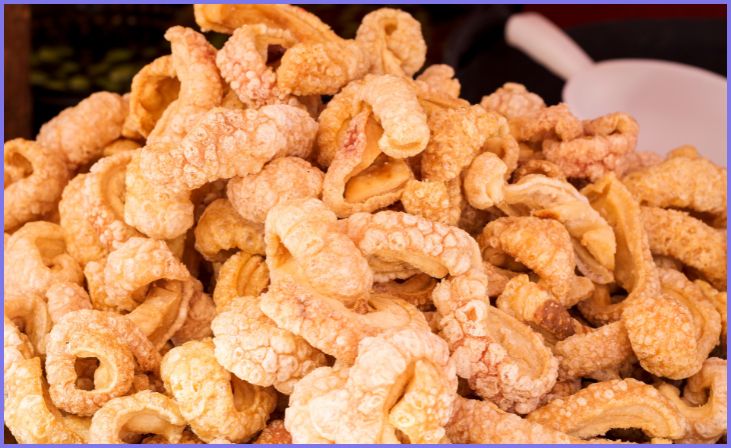
In terms of being compatible with a keto diet, pork rinds are considered suitable. However, it’s important to note that just because they don’t have carbohydrates doesn’t mean they are as healthy as vegetables like spinach and broccoli. Pork rinds contain high levels of saturated fat, sodium, and calories. So, it’s best to avoid eating a large bag of pork rinds every day.
Eating excessive amounts of pork rinds can lead to problems like high blood pressure and weight gain, which can increase the chances of developing diabetes and heart disease. While pork rinds do provide a good amount of protein (9 grams per serving), they are not a truly “healthy snack” despite how some manufacturers may market them.
Related Post: 15 Nutrient-Rich Foods That Can Help Transform Hair Loss into Hair Growth
16. Caramel Popcorn
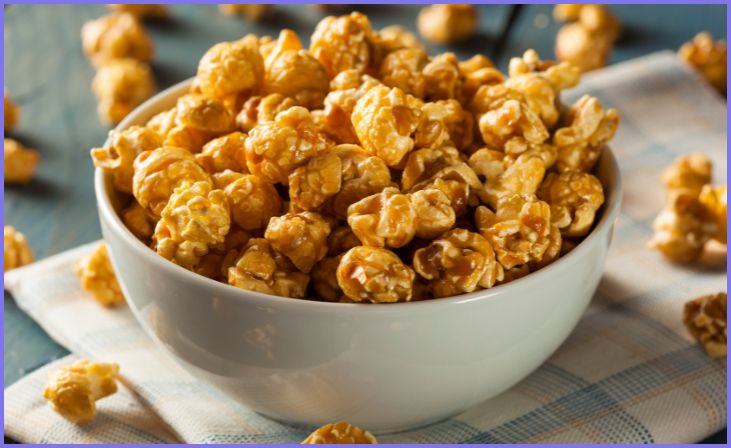
Caramel popcorn is a delicious snack, but it’s not good for your health. It contains high amounts of calories, sugars, fats, and sodium, which should be eaten in limited quantities. So, if you have more than a small portion of this sweet snack, it can cause problems for your health.
The biggest problem is that this snack can be highly addictive because of its high sugar content. Sugar affects our brains in a similar way to addictive drugs such as cocaine. It’s easy to overeat treats like caramel popcorn and still crave more because our brain doesn’t recognize when we’re full.
17. Potato Chips
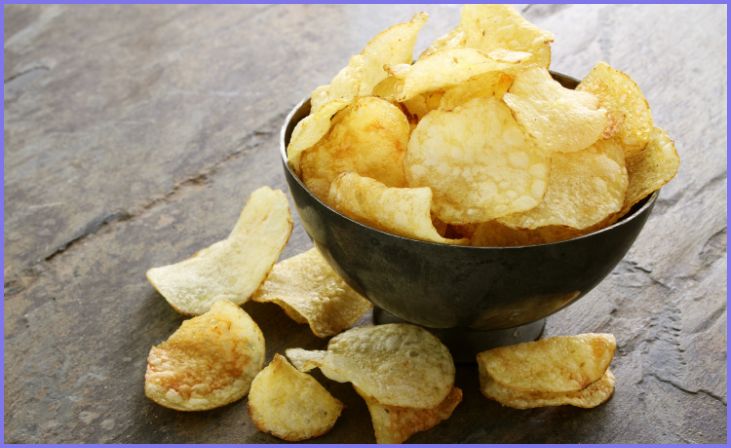
Most potato chips contain colorings, starches, preservatives, and saturated fat derived from petroleum. Moreover, even a small serving of 0.11 pounds of potato chips can provide 32% of the recommended daily value for sodium.
To add to the problem, French fries, which are closely related to popular snack foods, often contain monosodium glutamate (MSG). This compound enhances flavor but also increases the desire to keep eating more. That’s why it’s hard to eat just one fry.
18. Fruit Flavored Cereal
Children are often drawn to fruit-flavored cereals because of their colorful appearance and sweet taste. Unfortunately, these cereals are not very healthy. Even though the cereal box may claim to have a natural fruit flavor, the truth is that fruit is not even included in the ingredients.
Moreover, the excessive sugar content in this cereal can increase the risk of obesity, diabetes, and high blood pressure in both children and adults. It’s not the best choice for breakfast; consider opting for something rich in protein and fiber instead.
19. Honey
Honey is a wonderful and natural food product that offers numerous benefits. It contains antioxidants and can provide relief for a sore throat and help heal cuts. However, despite being a superfood, honey is still very high in sugar, so it’s important to consume it in moderation.
Heart specialists caution against consuming excessive amounts of sugar, as it can increase the risk of heart disease and various other health issues that are not easily resolved. In fact, many experts consider sugar to be the most significant dietary villain. So, before adding an extra spoonful of sweetener to your chamomile tea, it’s worth reconsidering the potential consequences.
20. Chocolate Milk
It’s true that chocolate milk is a tasty drink loved by both kids and adults, and it contains calcium, Vitamin D, and protein. Having a small amount of it occasionally is fine, but if you drink a lot of this sugary beverage, it can increase the chances of weight gain and certain chronic diseases.
Chocolate milk has nearly the same amount of sugar as a cup of soda. One cup of chocolate milk contains twenty-five grams of sugar and a significant number of calories. Since one-third of children in the U.S. are overweight or obese, it’s best to avoid choosing chocolate milk as a beverage for your kids (and yourself).
21. Peanut Butter
Peanut butter is a calorie-dense food that is rich in protein, making it a popular snack for those who want to limit their carbohydrate intake. The fat in peanut butter is mostly considered healthy, although it does contain some saturated fat. Consuming excessive amounts of saturated fat over a long period of time can increase the risk of heart problems.
In essence, peanut butter is a healthy food, but it should be eaten in moderation, just like anything else. Overindulging in peanut butter every day can lead to weight gain and high cholesterol levels. As they say, too much of a good thing can be harmful.
22. Creme Eggs
Every spring, people fall into two groups: those who enjoy Cadbury Crème Eggs and those who don’t. In America, Hershey makes these chocolate eggs filled with sweet crème. While they make for a delightful treat during the spring holidays, it’s best not to consume more than one or two of them.
We all agree that these indulgent treats are tasty, but according to Cadbury’s website, each egg contains 26.5 grams of sugar. Since it’s recommended not to exceed 30 grams of sugar per day, eating just one of these eggs would use up almost all of your daily sugar allowance. It might be tempting, but remember that moderation is important in this case!
23. Donuts
Donuts are incredibly popular treats loved by many. These sweet goodies come in a wide variety of flavors, fillings, and decorations, providing endless options to suit any taste. They can be filled with various flavors and decorated with sprinkles and frostings of all sorts.
The issue with donuts is twofold. Firstly, they often have a high sugar content. Secondly, they are fried, which means they contain trans fats. Unfortunately, donuts should not be a regular part of anyone’s daily diet, even police officers.
24. Spicy Corn Chips
Takis Fuego snacks are quite popular, but their nutritional value is not very good, and that can be concerning. These snacks have high levels of sodium, calories, saturated fat, and trans fat, all of which can negatively impact your health.
Eating Takis Fuego can increase the risk of developing high blood pressure and cardiovascular diseases. Furthermore, these spicy chips contain red dye, which has been linked to the formation of tumors.
25. Prepackaged Hamburgers
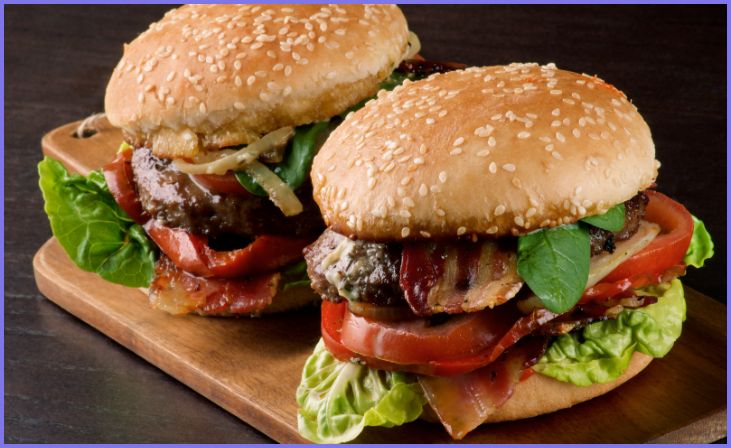
Prepackaged burgers are often preferred because they are cheaper. However, since they are prepackaged, the quality and origin of the meat used in them can be uncertain. This allows companies to cut down on production costs.
In reality, some packages mention that the hamburger content is only a certain percentage of “meat.” The remaining portion can consist of various ingredients, such as soy or animal byproducts like hides. However, this information is often not disclosed on the labels.
26. Frosting
According to Nutrition Action, frosting is certainly on the list of “foods to avoid.” When you examine the ingredients of frosting, it becomes evident why it’s considered unhealthy. Even though you may think it’s just a small quantity on a cake or cupcake, even that small amount contains a significant amount of sugar.
If we examine the nutrition label of a well-known canned frosting like Betty Crocker Vanilla Rich & Creamy Frosting, we can see some concerning values. A single serving, which is two tablespoons, contains 140 calories, 2.5 grams of saturated fat, and a significant 19 grams of sugar. Additionally, when you add this frosting to a slice of cake, you’re also adding to the overall sugar content.
Related Post: The Benefits of the Golden Grain
27. Pre-Cut Watermelon
In the past, there was a belief that watermelon could spread diseases like yellow fever or typhus. However, this has not been proven to be true. Nevertheless, there are some concerns related to its consumption, particularly when buying pre-cut watermelon from the supermarket.
The issue with eating pre-cut watermelon is that it can be contaminated with bacteria that cause salmonellosis, an illness. In 2019, there was an outbreak of salmonella linked to pre-cut watermelon, as reported by WebMD. To ensure safety, it’s best to buy the whole watermelon and cut it at home yourself.
28. Potatoes
Similar to other vegetables, potatoes can sometimes be exposed to harmful pesticides that can pose risks to human health. However, that’s not the only concern with potatoes. You may have observed that as potatoes age, they tend to turn green.
When potatoes turn green, it means they have produced a lot of glycoalkaloids, which can cause food poisoning ranging from mild to severe. If a potato has turned green, it’s advisable not to eat it. Similarly, if the potatoes taste bitter, it’s best to avoid consuming them as well.
29. Alkaline Water
Natural alkaline water is created when water flows over rocks, resulting in a higher pH level compared to tap water. Alkaline water is believed to be healthier for the body than regular water, and some even claim that it can improve conditions such as diabetes, high blood pressure, and high cholesterol.
However, if you have a chronic disease, or kidney or liver problems, it’s important to consult your doctor before drinking alkaline water. This is because alkaline water can raise sodium levels in the body, which may not be suitable for certain health conditions.
30. Agave
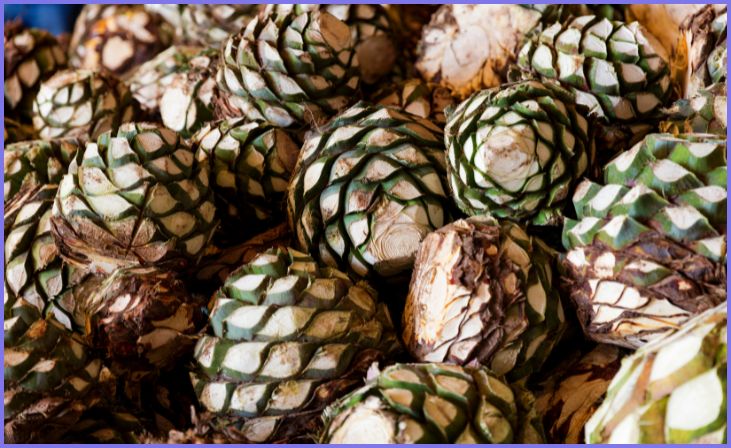
Agave nectar is often marketed as a healthier substitute for refined sugar or other syrups. However, the reality is different. Agave nectar contains the same amount of sugar as many other sweeteners, and in some cases, it may even have a higher sugar content.
One tablespoon of refined sugar contains 40 calories, whereas the same amount of agave nectar has 60 calories. Furthermore, agave nectar is high in fructose, which can lead to fat buildup in the liver and increase levels of bad cholesterol.
Bottom Line
In conclusion, making informed choices about the foods we consume is crucial for maintaining good health and managing our budgets effectively. By identifying and reducing our intake of these harmful and expensive food options, we can take significant steps towards a healthier lifestyle and a more balanced financial outlook.
Frequently Asked Questions (FAQs)
No, not all affordable foods are unhealthy or costly. This blog post focuses on specific common choices that can be detrimental to your health and budget.
Look for alternatives that offer nutritional value and are cost-effective. Consider meal planning, cooking at home, and exploring local produce markets for affordable options.
Planning meals in advance and having healthy snacks readily available can help you avoid impulsive choices when hunger strikes.
Staples like rice, beans, oats, and frozen vegetables are both budget-friendly and nutritious. Incorporating these into your diet can be a good start.

